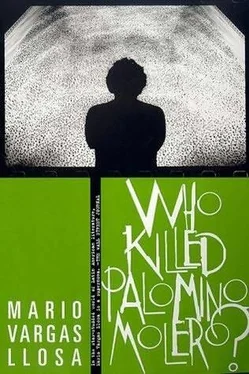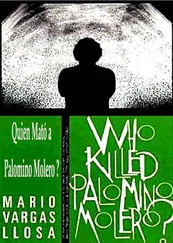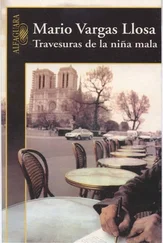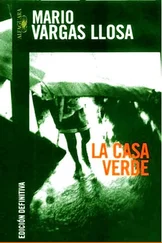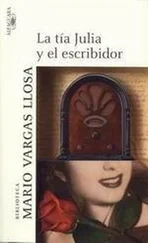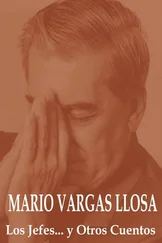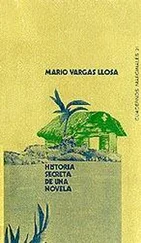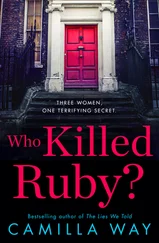“One question, Chunguita. Didn’t anyone ever crack a bottle over your head for being such a wise guy?”
“Since when have you been so curious,” she replied, not deigning to look at him.
“Someday someone’s going to give you a lesson in good manners.”
“I’ll bet it won’t be you,” said La Chunga, yawning.
The four Unstoppables walked along the sandy path that led to the main road, passed the Piura blueblood club, and headed toward Grau’s monument. It was a warm night, quiet and starry. The mixed smells of carob trees, goats, birdshit, and deep frying filled the air. Lituma, unable to erase from his mind the picture of the impaled and bloody Palomino Molero, wondered if he’d be sorry he’d become a cop instead of living the free and easy life of the Unstoppables. No, he wouldn’t be sorry. Even though work was a bitch, he ate every day, and his life was free of uncertainties. José, Mono, and Josefino were whistling a waltz in counterpoint, and Lituma was trying to imagine the lulling tones and the “captivating melodies” of the kid’s boleros. At the entrance to the Variety, he said goodbye to his cousins and Josefino. He lied to them, saying the truck driver from the International was going back to Talara earlier than usual and that he didn’t want to miss his ride. They tried to shake him down for some cash, but he didn’t give them a cent.
He headed for the Plaza de Armas. On the way he spotted the poet Joaquín Ramos on the corner, wearing a monocle and pulling along the goat he called his gazelle. The plaza was crowded, as if people were there for some church function. Lituma paid no attention to them and, making as if he were going to meet a woman, crossed the Old Bridge over to Castilla. The idea had taken shape while he was drinking his beer in La Chunga ’s. Suppose she wasn’t there? What if she’d moved to some other city to put her grief behind her?
But there she was, sitting on a bench in the doorway of her house, enjoying the cool of the evening as she shucked some corn. Through the open door of the adobe hut, Lituma could see the woman’s few pieces of furniture: cane chairs (some without seats), a table, some clay pitchers, a box she used as a dresser, and a tinted photograph. “The kid,” he thought.
“Evening.” He stood in front of the woman. She was barefoot, wearing the same black dress she had on that morning in the Talara Police Station.
“Evening,” she murmured, looking at him without recognizing him. Some squalid dogs sniffed at him and growled. In the distance, someone strummed a guitar.
“May I talk with you for a minute, Doña Asunta? About your son Palomino.”
In the half light, Lituma could just make out her furrowed, wrinkled face, her tiny eyes covered by puffy lids scrutinizing him uneasily. Were her eyes always like that, or were they swollen from crying?
“Don’t you recognize me? I’m Officer Lituma, from Talara. I was there when Lieutenant Silva took your statement.”
She crossed herself, muttered something incomprehensible, and Lituma watched her laboriously stand up. She went into the house, carrying her corn and her bench. He followed her and took off his cap as soon as he was inside. He was moved by the fact that this had been Palomino Molero’s house. He was not following orders but his own initiative; he hoped it wouldn’t mean trouble.
“Did you find it?” she mumbled in the same tremulous voice she used in Talara to make her declaration. She sagged into a chair, and since Lituma stared at her questioningly, she raised her voice. “My son’s guitar. Did you find it?”
“Not yet.” He remembered Doña Asunta sobbing as she answered Lieutenant Silva’s questions, and constantly asking about getting back Palomino’s guitar. But after she’d gone, neither he nor the lieutenant remembered. “Don’t worry. Sooner or later it’ll turn up, and I’ll bring it to you myself.”
She crossed herself again, and it seemed to Lituma she was exorcising him. “I bring it all back to her.”
“He wanted to leave it here, but I told him, Bring it with you, bring it with you. No, Ma, at the base I won’t have any time to play. Besides, I might not even have a locker to store it in. Let it stay here. I’ll play when I come to Piura. No, Palomino, take it with you so you can pass the time better, so you can accompany yourself when you sing. Don’t give up your guitar when you love it so much. Oh, God… my poor child.”
She started to cry, and Lituma was sorry he’d stirred up the old woman’s memories. He muttered some broken consolations as he scratched his neck. He sat down, just to do something. Yes, the photograph was of Palomino making his First Communion. For a long time, Lituma stared at the long, angular little face of the dark-skinned boy with his hair slicked down, dressed all in white, with a candle in his right hand, a missal in his left, and a scapulary around his neck. The photographer had reddened his cheeks and lips. A scrawny kid, in a rapture, as if he were contemplating the infant Jesus.
“Already he sang beautifully,” whimpered Doña Asunta, pointing to the photo. “Father Garcia had him sing by himself, and everybody clapped, right during Mass. ”
“Everybody said he had a terrific voice. He might have become an artist, like the ones that sing on the radio and make tours. Everybody says so. Artists shouldn’t get drafted. They should be exempt.”
“Palomino didn’t get drafted. He was exempt.”
Lituma looked her in the eye. The old lady crossed herself and started to cry again. As he listened to her crying, Lituma stared at the insects swarming around the lamp. There were dozens, buzzing and crashing again and again into the glass shade, trying to reach the flame. They wanted to kill themselves, the idiots.
“The fortune-teller said that when the guitar is found the murderers will be found, too. Whoever’s got his guitar killed him. Murderers! Murderers!”
Lituma nodded in agreement. He was dying for a smoke, but to light up a cigarette in the presence of this grieving lady seemed sacrilegious to him.
“Your son was exempt from military service?”
“The only son of a widow,” recited Doña Asunta. “Palomino was the last; the other two died. That’s the law.”
“It’s true, so many unfair things happen.” Lituma scratched his neck once again, certain she was going to start crying again. “I mean, they had no right to call him up, right? You call that justice? If he hadn’t been drafted, he’d be alive. For sure.”
Doña Asunta shook her head as she dried her eyes on the hem of her dress. In the distance they could still hear the guitars, and Lituma suddenly fantasized that the guy playing out there in the darkness, maybe on the riverbank watching the moon, was Palomino.
“They didn’t draft him; he enlisted.” Doña Asunta was still weeping. “Nobody made him go. He went into the Air Force because he wanted to. He brought on his own tragedy.”
Lituma stood there, silently watching the seated woman, who was so short her bare feet scarcely reached the floor.
“He took the bus to Talara, went into the base, and said he wanted to join up. Poor baby! He was going to his death. He did it himself. My poor Palomino!”
“Why didn’t you tell this to Lieutenant Silva when you were in Talara?”
“He never asked. I answered every question he asked me.
That was true. Did Palomino have any enemies? Did anyone ever threaten him? Had she ever heard of his arguing or fighting with someone? Did anyone have any reason to harm him? Had he told her he was thinking of deserting? Asunta meekly answered every question: no, nobody, never. But the truth was that the lieutenant had never thought of asking if the kid had been drafted or if he enlisted.
Читать дальше
